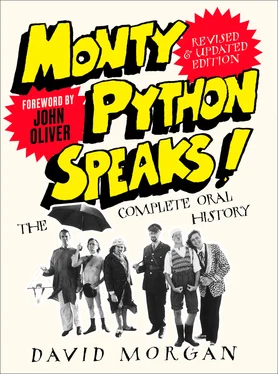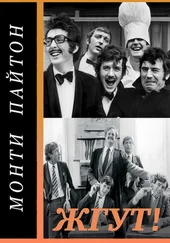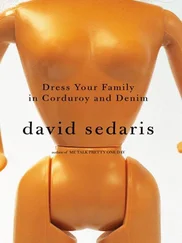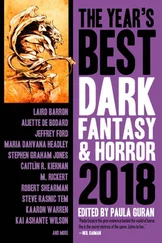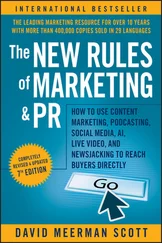JONES:If you’d written it, you tended to get the first say-so if you really wanted to do it. People would tend to come up with what they wanted to do. And then it would be thrown around; there would be a discussion if somebody else wanted to do it.
IDLE:Casting always came last in everything. That was the brilliance of it being a writer’s show. Once we were happy with the text, then we cast. It was usually fairly easy, like the John parts were obvious – people who shouted or were cruel to defenceless people or animals. Mike and I were usually the ones who could play each other’s parts. Usually people spoke up if they felt they were a bit light in a show; they might sulk until someone noticed, but it was swings and roundabouts, really. Also, we had no girls to sulk or feel left out (i.e., Saturday Night Live ) and we would happily grab most of the girls’ parts for ourselves. Serve ’em right, too. Get their own bloody shows! How many men are in the Spice Girls?
Did everyone have an equal interest in performing? Did you all consider yourselves writers first and then actors, or writer/actors?
PALIN:Writer/actors I think, yes. Everybody loved performing, absolutely. Everybody wanted to go out there and put the dress on or whatever! I rarely heard an instance where someone said, ‘Well, I don’t want to do that.’ The great thing was, because we were all brought up in the university cabarets, to get out there and show your own material was all part of it. Writing was merely 50 per cent; the other 50 per cent was the performing of it.
IDLE:Sometimes I enjoyed performing more. In film, I loved the scene in Grail where the guard is told not to leave the room till anyone, etc., because the first time it went right and it’s there on film. It just felt funny – all one take. (Well done, Jonesy. I have to say I love filming for Jonesy.) And likewise in Brian with me as the jailer and Gilliam as the jailer’s assistant. I loved playing both these Palin-created scenes. I wish he had written more. He has an effortless grasp of character for an actor, especially scenes where all three parts are funny. Graham only hiccoughs in the guard scene, but it just adds a wonderful pleasant madness. In Brian, Terry Gilliam makes dark, grunting noises where I stutter away and Michael is this very pleasant lost man who is somehow in charge of these lunatics. It is pure Palin at his finest. They are delightful scenes and my personal acting favourites.
PALIN:Personally, I always enjoyed when you were able to flesh the character out a bit, even within a sketch. I mean, I loved playing the man in the ‘Dead Parrot’ sketch or the ‘Cheese Shop’, because you can give them some sort of character – they’re not just somebody saying, ‘No, we haven’t got this,’ ‘No, we haven’t got that.’ It isn’t just the words, it’s the evasiveness and the degree of evasiveness, and why a man should be that evasive, and what’s going through his mind [that] appeals to me. I really enjoyed getting to grips with characters like that, even within a fairly short sketch.
CLEESE:I remember once that I particularly liked a sketch that either Mike or Terry had written about one of those magazines that is just full of advertisements, so if you wanted to buy a pair of World War II German U-boat commander field glasses or a mountain bike or a garden shed you went to this magazine. And I liked the sketch so much I asked if I could do it – very unusual for me. And Mike had slight reservations about whether I should do it, but they let me. And I didn’t do it particularly well, and I remember discussing it afterwards with Mike, and it was because I was trying to go outside my range – in other words, I didn’t do it as well as he would have done it because he’s better at doing the ‘Cheerful Charlie’ salesman.
But similarly if you’d given Mike that scene where I go on about the Masons and start that strangely aggressive and resentful speech, I think Michael wouldn’t be so good in that area. But it’s much more complicated than you might think because it is not that I am happy about shouting at people, because actually I’m extremely unhappy, I’ve almost never shouted at anyone. I’ve found it almost impossible to do, but I seem to be able to do it on screen. So it’s not like saying, ‘In character you’re the same as you are in everyday life’; that would be utterly simple-minded and untrue, but it just seems to be the case that some people are more comfortable portraying some emotions; I don’t mean that it isn’t utterly connected with their ordinary life, but that it’s not as connected with it as you might think.
Which of the Pythons did you think was the prettiest in drag?
GILLIAM:Prettiest woman, goodness! I don’t know. John was actually pretty nice when he played in ‘The Piranha Brothers’, he’s wonderful sitting in the bar: ‘He knows how to treat a female impersonator.’ John was fantastic in that. John loved it so much I was beginning to have concerns there! The most convincing woman? I think Eric was the best woman. I’m not sure ‘pretty’ came into it. Do you have another adjective?
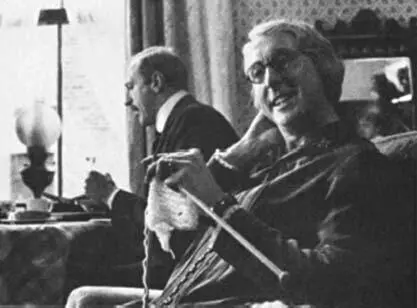
‘We could have it any time we wanted.’ Chapman and Idle as the Protestants in The Meaning of Life.
‘Least unattractive’?
GILLIAM:I think in Meaning of Life, Eric as the Protestant Wife was spectacular. I just thought that was an extraordinary, wonderful performance. Terry and Mike were always very broad, and Graham was also very broad, but I actually thought the Protestant Wife that Eric played was amazing. Eric’s father died when he was young, so his role model was his mother, and maybe that’s why he was good.
Once the shows were assembled, was it easy to see it as a group effort, or was there still a sort of jealous, protective feeling:
‘This is our sketch, that is their material’?
PALIN:I’d like to think we naturally were rooting for every sketch [rather than] anyone wanting their sketches to go down better, although there probably was a little bit of that, but basically you just wanted the show to have laughs all the way through. Putting together that show involved decisions which we’d all taken – the choice of the material, the casting, the links, all that – as part of the group. So if something didn’t work, then yes, it was seen as a failure of the group: ‘We shouldn’t have put that in or cast it that way, set it up in such a way.’ It was very much all group decisions.
And quite interesting, because early on John was undoubtedly the most well-known, [yet] he was very happy to be part of that group – he didn’t want it to be in any way The John Cleese Show, and I would have thought if there was going to be a possible area of difficulty, that would have been one of the problems. John was the ‘star’ before Python; he wasn’t necessarily the star of Python, although he probably was – he was the best known and possibly the best performer. But John didn’t see it that way; John saw it as a group, and Python [assumed] responsibility for everything that went up there, rather than your individual responsibility.
Читать дальше
